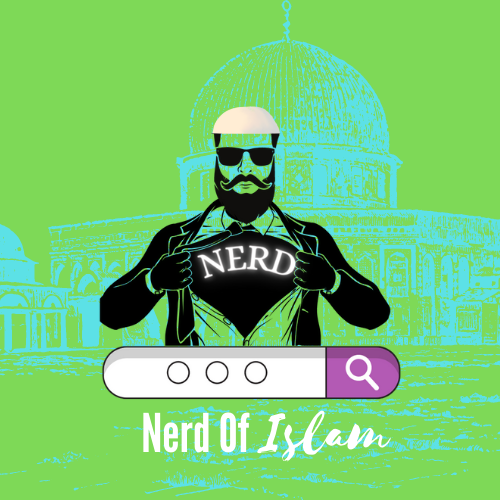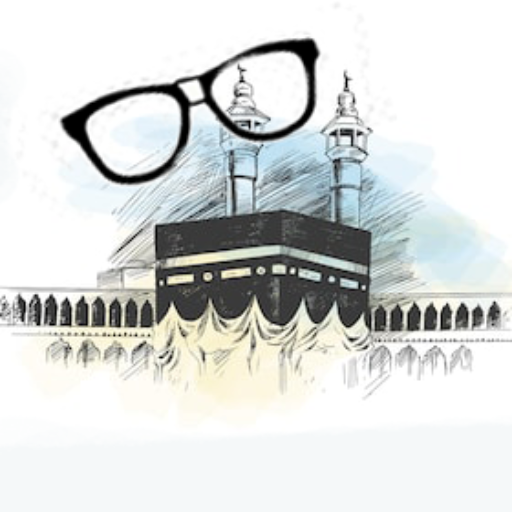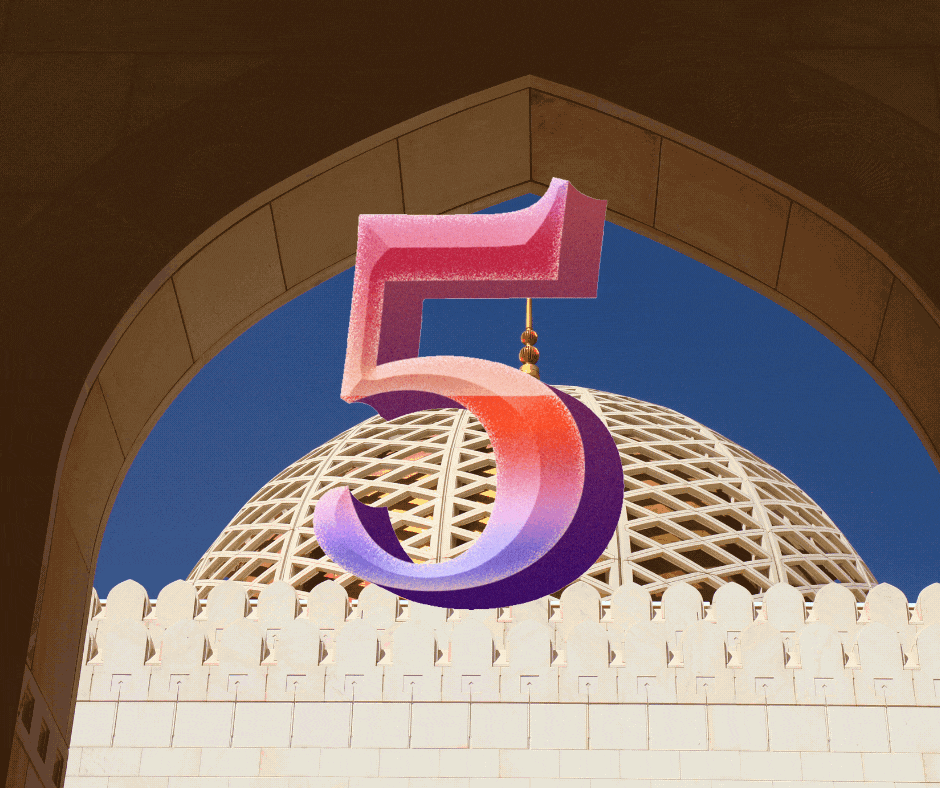Islam has been built on five pillars
On the authority of Abdullah, the son of Umar ibn al-Khattab (radiyallaahu ‘anhu), who said: I heard the Messenger of Allah (ﷺ) say,
“Islam has been built on five [pillars]: testifying that there is no deity worthy of worship except Allah and that Muhammad is the Messenger of Allah, establishing the salah (prayer), paying the zakat (obligatory charity), making the hajj (pilgrimage) to the House, and fasting in Ramadhan.”
[Bukhari & Muslim]
عَنْ أَبِي عَبْدِ الرَّحْمَنِ عَبْدِ اللَّهِ بْنِ عُمَرَ بْنِ الْخَطَّابِ رَضِيَ اللَّهُ عَنْهُمَا قَالَ: سَمِعْت رَسُولَ اللَّهِ صلى الله عليه و سلم يَقُولُ: ” بُنِيَ الْإِسْلَامُ عَلَى خَمْسٍ: شَهَادَةِ أَنْ لَا إلَهَ إلَّا اللَّهُ وَأَنَّ مُحَمَّدًا رَسُولُ اللَّهِ، وَإِقَامِ الصَّلَاةِ، وَإِيتَاءِ الزَّكَاةِ، وَحَجِّ الْبَيْتِ، وَصَوْمِ رَمَضَانَ”.
[رَوَاهُ الْبُخَارِيُّ] ، [وَمُسْلِمٌ].


The Narrator
‘
He is Abdullah bin Umar bin Al-Khattab (radhiAllahu anhumma), his mother was Zainab bint Maz`un ( radhiAllahu anha) and his maternal uncle was the great and venerable companion, Uthman bin Maz`un ( radhiAllahu anhu). His father was the great and venerable companion and one of the rightly-guided Caliphs who was a shining example of fairness and a vigorous upholder of the truth, and he bears a high rank and outstanding virtues, as transmitted by the books of Seerah and the books written about him.
The Messenger of Allah (sallallaahu alaihi wa-sallam) said of him: if there were to be a Prophet after me, it would have been Umar bin Al-Khattab. And it is reported on the authority of Aishah the the Prophet said:I see the devils among the jinn and mankind fleeing from Umar. His son, Abdullah was born in the third year following the start of the Prophet’s mission.
The Subject and Overall Explanation
(from Shaykh Muhammad ibnul ‘Uthaymeen -rahimahullah)
The Pillars of Islam are the cornerstones on which Islam is built. There are five pillars of Islam. They are mentioned in the Hadeeth of ibn ‘Umar (radiyallaahu anhuma), that the Prophet (sallallaahu alaihi wa-sallam) said, what translated means, ‘Islam is built around five (pillars):
1. The testimony that there is no god except Allah and that Muhammad (sallallaahu alaihi wa-sallam) is His slave and Messenger,
2. To establish prayer,
3. To give Zakaat (obligatory charity),
4. To fast in Ramadhan, and,
5. To perform Hajj (pilgrimage).”
[Saheeh Muslim and Saheeh al-Bukharee]
1. The Shahadah (the testimony) that there is none worthy of worship except Allah and that Muhammad (sallallaahu alaihi wa-sallam) is His slave and Messenger, requires solid belief, in the heart, in it. This belief must also be confirmed by the tongue. It is called Shahadah (testimony) to show that when a believer believes in it, his belief is as solid as if he is an eyewitness. This Shahadah is one cornerstone, although it contains many aspects that must be taken as belief. This testimony (comprised of two testimonies as is apparent), is considered one cornerstone, either because it contains testifying that Muhammad (sallallaahu alaihi wa-sallam) is only a conveyer of the Message from Allah and His slave and Messenger, thus completing the testimony that Allah is One or because these two testimonies together are the reason behind the acceptance of deeds by Allah. Deeds are neither valid nor accepted unless they are done with sincerity for the sake of Allah alone, and this is called “Ikhlas,” and through following the way of the Messenger of Allah (sallallaahu alaihi wa-sallam).
Realizing the essence of this testimony, that there is no god except Allah, is a result of Ikhlas (sincerity) to Allah. Realizing the essence of testifying that Muhammad (sallallaahu alaihi wa-sallam) is His slave and Messenger, comes as a result of following the Messenger of Allah. This magnificent testimony leads to many sweet results. It frees the hearts and souls from being enslaved to the creation and from following other than the Messenger.
2. Establishing the prayers means to worship Allah by praying to Him. One must preserve the prayers by establishing them on time and in the best manner, as taught by the Prophet (sallallaahu alaihi wa-sallam). Rewards for establishing the prayers include tranquility and happiness that are felt in the heart. Prayer also leads one to abandoning evil deeds and behavior.
3. Paying Zakat is worshipping Allah by paying the amount of charity obligated on the ones who have enough money or possessions that require paying Zakat. Paying the required Zakat leads to cleansing the heart from the evil of misery. It also fulfills the needs of Islam and Muslims.
4. Fasting Ramadhan contains worshipping Allah by fasting during the days of this month, by not eating or drinking from dawn to sunset. Fasting trains the souls to abandon what is preferred and desired, seeking the pleasure of Allah.
5. Performing Hajj (pilgrimage to Makkah) is worshipping Allah by visiting the Holy House to perform the rituals of Hajj. Hajj trains the souls to spend time and physical effort, seeking to obey Allah. This is why Hajj is considered a type of Jihad (struggle).
Related: Saheehayn (Bukhari & Muslim)
These fruits of performing the pillars of Islam, along with many others we did not mention, make the Muslim nation pure and clean. They lead the nation to preserving the religion of Truth and dealing with the creation in the best manners of justice and truthfulness. All other acts of the religion depend on how well these pillars are preserved. The Ummah (Muslim nation) can reach success as long as its members preserve the religion. This Ummah will not reach the desired success as long as the religion is not fully respected and preserved.
Whoever wants to be certain of the above-mentioned facts, let him read the following Ayat (verses), “And if the people of the towns had believed and had piety, certainly, We should have opened for them blessings form the heaven and the earth, but they belied (the Messengers). So We took them (with punishment) for what they used to earn (of evil deeds). Did the people of the towns then feel secure against the coming of Our punishment by night while they were asleep? Or, did the people of the towns then feel secure against the coming of Our punishment in the forenoon while they play? Did they then feel secure against the plot of Allah? None feels secure form the plot of Allah except the people who are lost” [7:96-99]. Let him also read the history of previous nations, which gives valuable lessons for whoever is in possession of a mind that comprehends and is rightly guided. This history is a light for those whose hearts are not blocked from the truth. All our dependence is on Allah.
Pillars of Islamic Belief
Islam, as we explained before, is belief and Laws. We mentioned some pillars of the Laws. These pillars are the basis of Islamic Law. As for the Islamic ‘Aqeedah (creed), its pillars are: Believing in Allah, His Angels, His Books, His Messengers, the Last Day and the good or bad that Qadar (predestination) brings. These pillars are mentioned in the Book of Allah and the Sunnah of His Messenger (sallallahu alaihi wa-sallam).
Allah said, what translated means, “Righteousness is not that you (only) turn your faces towards the East and (or) the West (in prayers); but righteousness is (the quality) of the one who believes in Allah, the Last Day, the Angels, the Book and the Prophets” [2:177], and with regards to Qadar, “Verily, We have created all things with Qadar. And Our Commandment is but one, as the twinkling of an eye.” [54:49].
In the Sunnah, the Messenger of Allah said, in answer to Gibreel when he asked him about Iman (belief), “Iman is to believe in Allah, His Angels, His Books, His Messengers, the Last Day, and to believe in the Qadar and what it brings of good or bad.” [ Saheeh Muslim]
Study An Nawawi’s 40 Hadeeth – Start A Study Circle At YOUR Masjid!
ALL PROCEEDS GO TO MASJID BILAL MAINTENANCE &
THE SW MUSLIM CHILDREN’S FUND! GIVE MORE HERE PLEASE!
- Majmoo’ Al Fatawa of Imaam bin Baaz (rahimahullah) – English Translations [30 Volumes]
- Flee From Allah, To Allah
- What Is The Evidence That Islam Is True?
- Basic Facts About Angels
- Evidence for the validity of Islam



